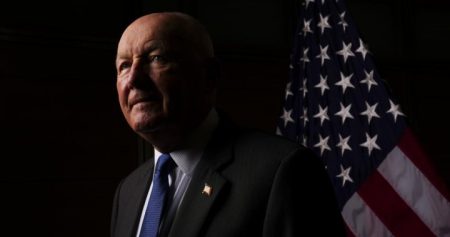Following a decisive election victory, Nova Scotia Premier Tim Houston has adopted a more conciliatory approach towards the federal government, marking a shift from his campaign rhetoric. During the election, Houston frequently criticized Prime Minister Justin Trudeau’s Liberal government, citing issues such as carbon pricing and cost-sharing for the Chignecto Isthmus protection project as key reasons for calling a snap election. He framed the election as a necessity to secure a strong mandate to challenge Ottawa. However, recent interactions, including a meeting with Trudeau, suggest a move towards collaboration and a less adversarial tone. Houston acknowledged a change in the dynamic, emphasizing the importance of maintaining a strong relationship with the federal government regardless of Trudeau’s future as Liberal leader.
The Chignecto Isthmus project, a critical infrastructure initiative to protect the vital land link between Nova Scotia and New Brunswick from rising sea levels, remains a central point of discussion. While Houston previously accused the federal government of attempting to “rip off” Nova Scotia by not covering the entire cost of the estimated $650 million project, his post-election stance is more nuanced. He expressed optimism about ongoing discussions with Ottawa, indicating a willingness to explore different financing models. Although the legal challenge initiated by Nova Scotia and New Brunswick, questioning the federal government’s responsibility for the project, is proceeding as planned, with hearings scheduled for March, Houston’s focus seems to have shifted to finding a mutually agreeable solution.
Despite the more cooperative approach, the legal challenge regarding the Chignecto Isthmus project continues. Both provinces argue that the federal government bears full responsibility for protecting the isthmus, a crucial transportation and infrastructure corridor. The case is awaiting Ottawa’s response, expected in January, and will proceed to hearings in March. While pursuing the legal avenue, Houston has simultaneously expressed a desire to find a collaborative resolution with the federal government, indicating a multi-pronged approach to address the issue. The premier’s seemingly contrasting approaches reflect the complexities of intergovernmental negotiations, balancing legal recourse with the pursuit of mutually agreeable solutions.
Adding to the province’s challenges is the impending presidency of Donald Trump in the United States, who has threatened to impose a 25% tariff on Canadian goods unless border security measures are improved. This poses a significant threat to Nova Scotia’s economy, given that nearly 70% of the province’s exports are destined for the U.S. Houston has expressed support for Trudeau’s “Team Canada” approach to dealing with Trump, emphasizing the importance of maintaining strong trade relations with the U.S. He plans to engage with governors from key U.S. trading partner states to mitigate potential economic fallout from Trump’s proposed tariffs.
Houston recognizes the seriousness of Trump’s pronouncements, regardless of the platform used to communicate them, and acknowledges the need to address the concerns raised by the president-elect. The premier’s focus is on protecting Nova Scotia’s economic interests by working collaboratively with the federal government and directly engaging with key U.S. stakeholders. This proactive approach aims to minimize the impact of potential trade disruptions and maintain the flow of goods and services across the border. The premier recognizes that a unified front, both domestically and internationally, is crucial to navigate the challenges posed by the incoming U.S. administration.
In summary, Premier Houston’s approach to intergovernmental relations has evolved since his election victory. While maintaining a firm stance on provincial interests, particularly concerning the Chignecto Isthmus project and trade relations with the U.S., he has adopted a more conciliatory tone towards the federal government. This reflects a pragmatic approach, balancing the pursuit of legal avenues with a willingness to collaborate and find mutually beneficial solutions. The premier’s focus remains on protecting Nova Scotia’s economic interests and securing critical infrastructure investments, navigating the complex landscape of federal-provincial relations and the evolving international trade environment. This measured approach likely aims to maximize the province’s leverage in negotiations and ensure the best possible outcomes for Nova Scotia.










